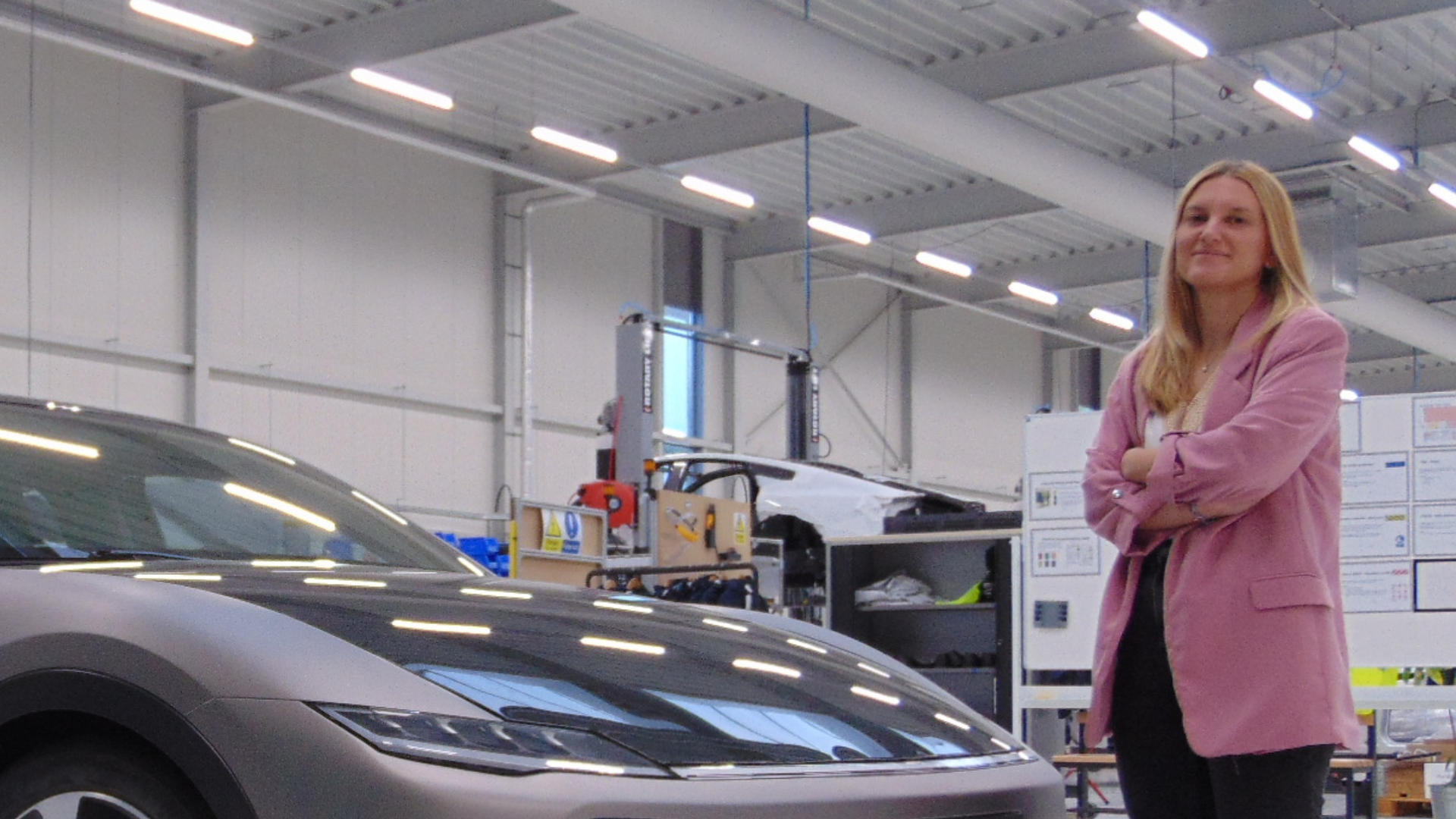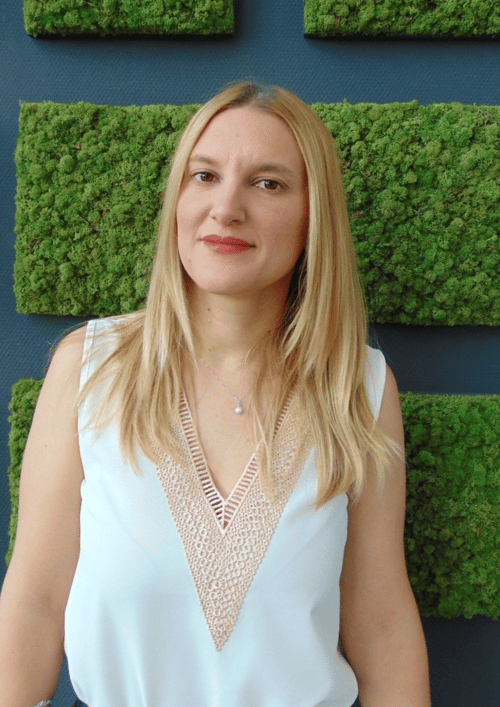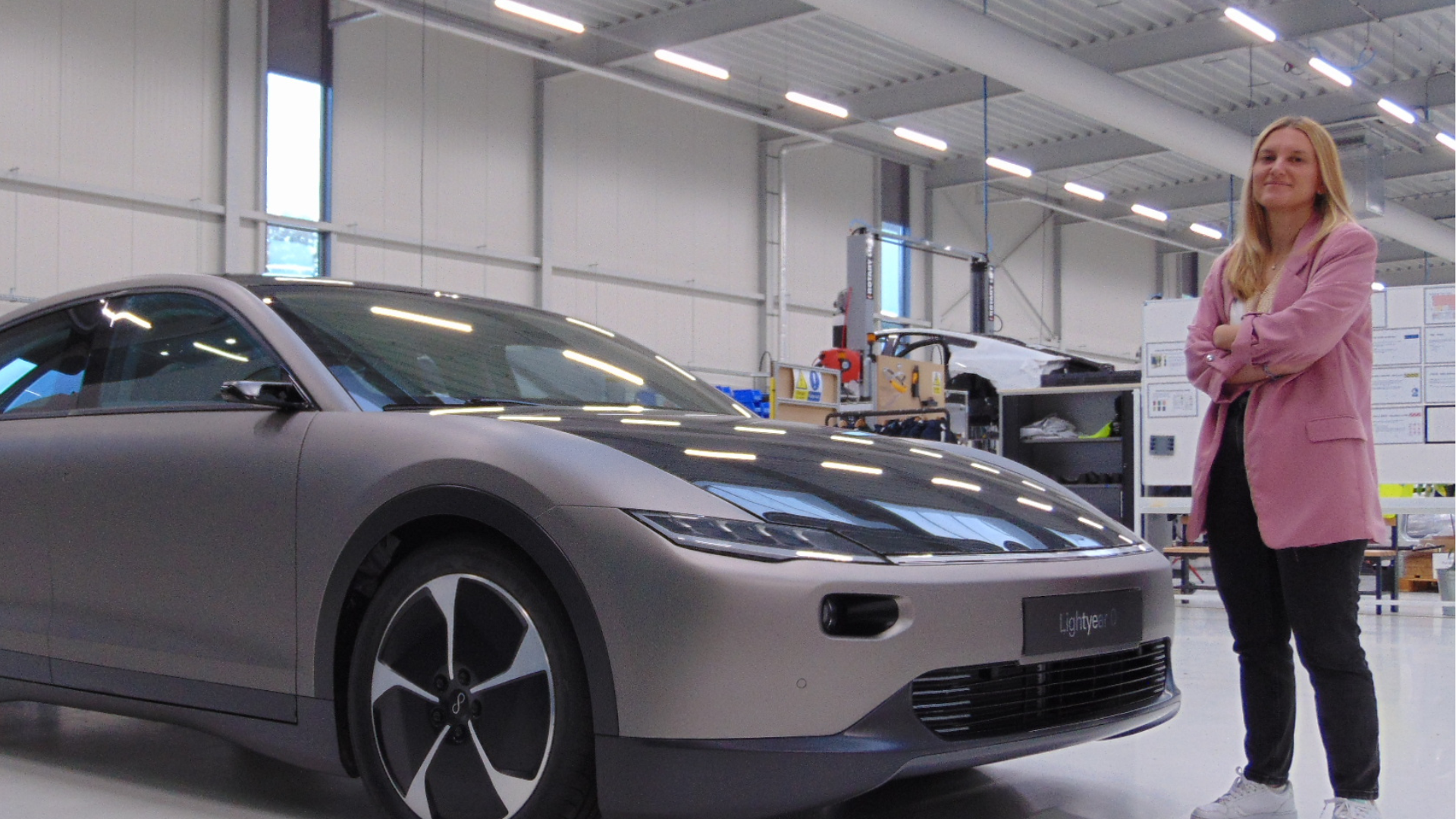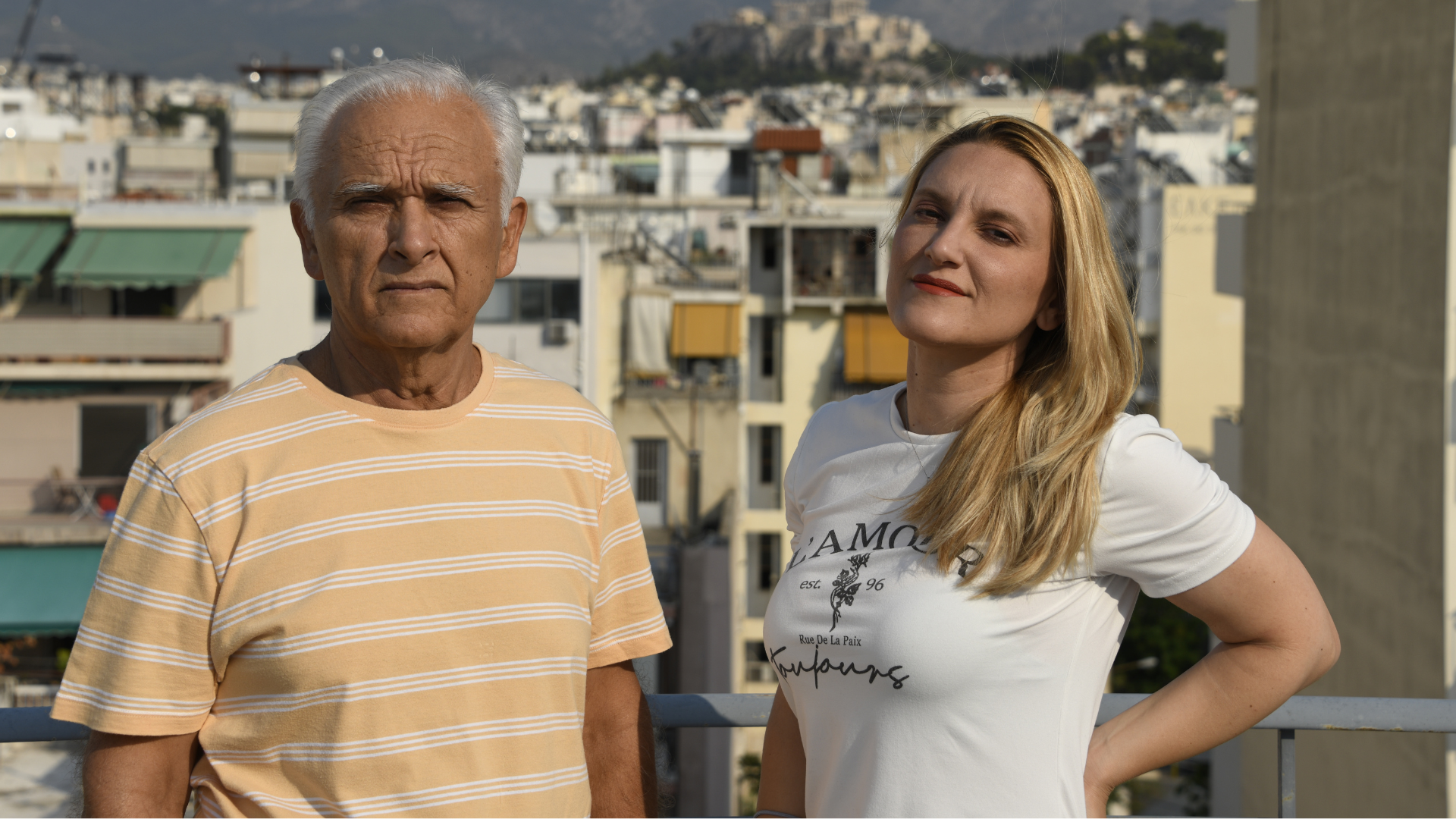


Born and raised in Greece, Vasiliki Ntampasi is living proof of how a family's support can play a pivotal role in a young girl's career option. Following her father's and brother's footsteps as an engineer was a decision nurtured and respected by her loved ones, despite the frowning faces of a traditional society that expected her to pursue a "female-friendly" profession. When she's not conquering the world, one solar car at a time, Vasiliki enjoys reading, going on hiking trails, and having fun at the traditional Greek dance club in the Eindhoven city centre. For this brilliant and brave lady, the sky's the limit: “Have your mind, eyes, and ears open as the opportunities are always in front of you,” she confidently says.
How young were you when you decided to pursue a career in technology?
My family has greatly influenced my choice: my dad and my older brother are electrical and computer engineers. As a child, I played with cables and such things my dad had around the house. When I was six, I was the first student in my class to have a personal computer, and when I was in high school, I started programming. My family not only influenced me: they also encouraged and empowered me to follow my choice. "There's something out there called technology. It's a massive field, and you can do whatever you want with it," they said. When I visited my brother at the university, I was inspired by seeing him building his own mobile robot for his thesis. So I took specific classes to follow the tech route.

I was lucky enough my parents made sure I felt free to decide. They would say: "Shut your ears to those comments. It's your decision, your future. Feel free to try whatever you want." I studied electrical and computer engineering, finishing in the top 10 of my class. I did one master's in mechatronics design and the second in electrical and computer engineering. Then I started my Ph.D. in advanced control systems.
Why have you decided to move to the Netherlands?
During my Ph.D. third year, I worked at one of the biggest research centres in Greece. There were many opportunities to found start-ups, spin-offs, etc. I took the plunge and dropped out of my Ph.D. to start my start-up in the IoT sector: a cloud-based platform for remote controlling and advanced analytics in the renewable energy sector.
In 2017, the real impact of the crisis started in 2008 hit. The start-up was at its peak, so it was a tough decision to shut it down. I told myself, "I enjoyed the journey so far. Let's see what the new one looks like." Our company's office was located in the incubator of the Dutch Embassy in Greece. As such, we had a lot of interaction with companies from here. Therefore, when I understood that Greece was not the place for me anymore, I thought the Netherlands could be a good option; although I had never been here before! It's a well-organised country with a lot of talent and opportunities. And that's how I ended up in the Netherlands in October 2017.
How was the job hunt process here?
My partner already had an offer from ASML. With some tips from the people at the Dutch Embassy, I started to build my network here by joining meetups organised by different companies: "This is the place to be," I was told; "you will introduce yourself in a friendly way, without the pressure of an interview, and you'll know the companies around you and maybe find something interesting."
I was at one of those events when someone mentioned Lightyear. I had heard about the Solar Team, but I had no idea they were turning that project into a company. That was the sort of thing I wanted to do. I sent my CV, and two days later, I got a call inviting me to their office. It didn't feel like a job interview: we simply discussed how we could help each other. After a few more calls, I was a Lightyear employee, the first international in the company.
Did you feel like "an international?"
I've worked for Lightyear for more than four and half years, and I never felt like an outsider, even on the first days. Being an international among a group of Dutch-only colleagues was never an issue, culturally speaking. I was very well welcomed and, from day one, it felt like I belonged.
Now we have more than 500 colleagues; the company has grown very fast and has more than 40 nationalities. But the culture is the same: dynamic, flexible, open, supportive, and people-centred. It seems like we're a group of friends with the mission of bringing that car to the market to change the world and help our environment by reducing pollution and directly tackling climate change.

What does diversity mean to you?
In Greece, diversity, especially in the tech industry, does not exist; this is painful. I have not seen many women in management or critical positions. For most companies, men should be the ones in those roles. When hiring someone, I don't want to know their name, gender, or nationality. My focus is on what that person brings to the table, their experiences and accomplishments, and how that all fits within the product they will be working on. That's what's crucial.
Imagine you're in a critical meeting where key decisions should be made. However, you only have similar people to think along--one mindset. How can you ensure your choices will lead you to the outcome you're expecting or need if your blind spots are not exposed? You see, when I'm talking about diversity, I don't mean "we need more women" only. No. We need different points of view. The Thomas International Profile Analysis, for example, highlights people's communication styles, decision-making approaches, leadership practices, etc. That can be an excellent tool for recruiters and managers.
Who’s your biggest role model?
My dad, for sure. He grew up in a rural area and worked to raise money to attend university. He's very hands-on, always building something new. When he graduated, he joined a big corporation in Greece, eventually retiring there. If I do at least 1% of what he did, that will be huge for me. He’s a remarkable, talented, and hard-working person, and I'm so proud of him. Whenever I tell him to slow down and enjoy his retirement, he replies, "you know me: I cannot stop."
Do you have any tips for those navigating the job market in the Brainport Region?
Try to build your network: look for opportunities to introduce yourself instead of only filling out applications and writing cover letters. You need to do something to present yourself physically. In the Netherlands, people are really open to networking. Look for meetups or other events around the area you want to work for. Search for LinkedIn groups where mentors in the industry can give you tips. People are friendly and open to meeting for coffee and having a nice conversation. Believe me: the environment here helps you find your way.
